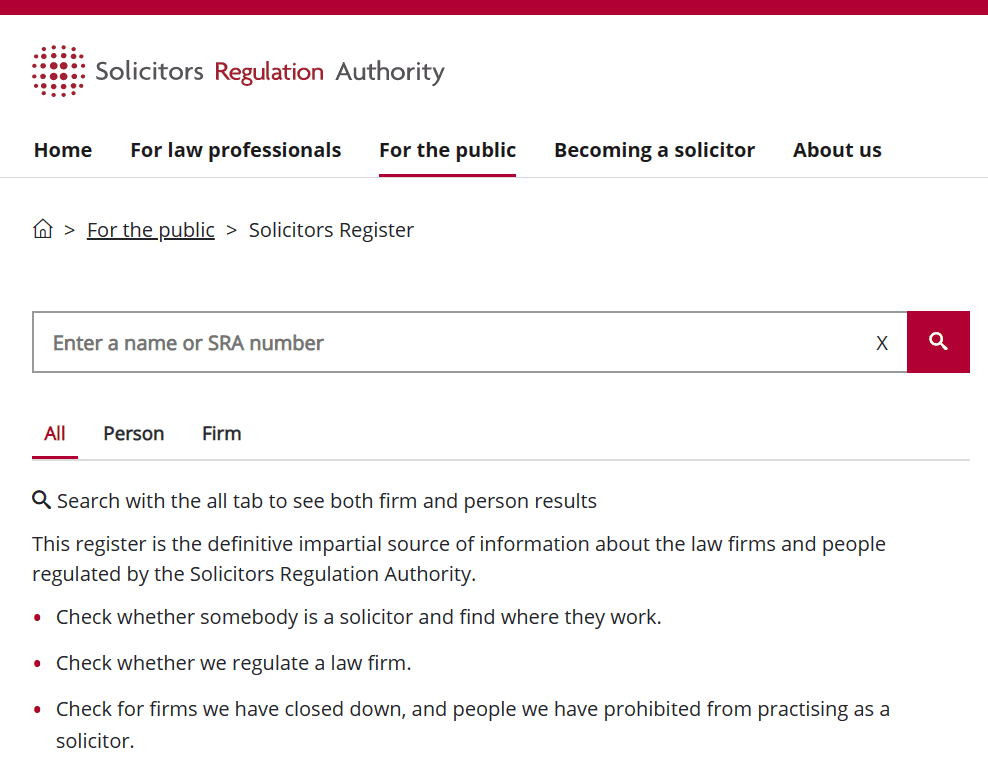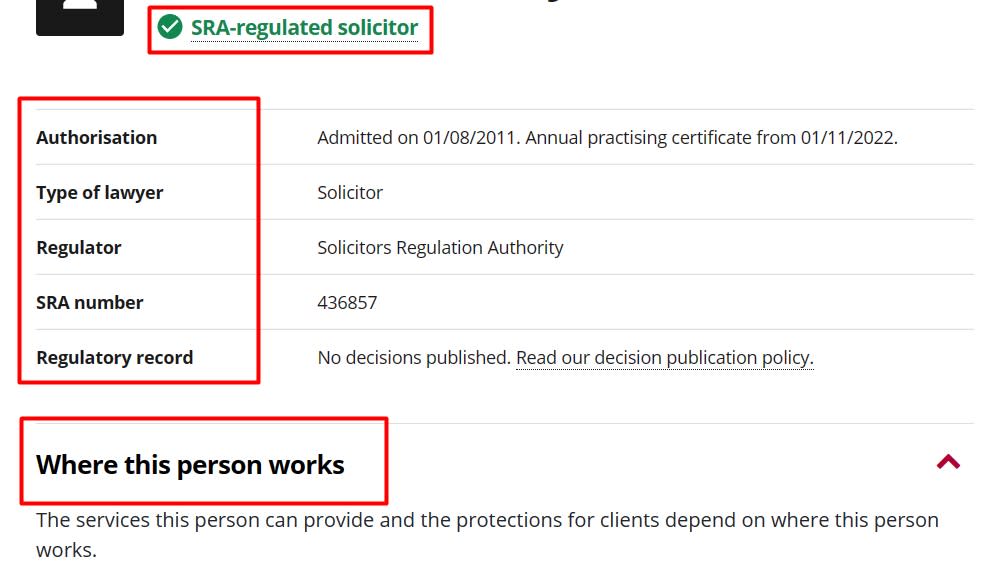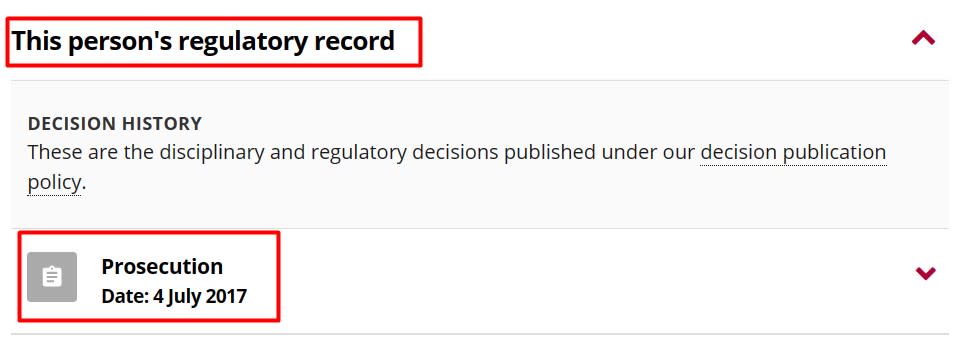

As of January 2024, there were over 200,000 solicitors on the SRA roll in the UK.
Which begs the question: how can you be sure that the solicitor you're hiring is the real deal and not some smooth-talking wannabe in a fancy suit?
In this article, we'll explore why you should always check a solicitor's record before working with them, their services, how you can use the SRA register to verify the qualifications of a solicitor, and how to understand the information you find. Newly armed with your solicitor checking powers, you'll be able to check credentials quicker than a solicitor can shout "objection!"
Why you should check a solicitor's record
Making sure to check a solicitor's record and background before hiring them is really important because it helps protect you from any bad behavior or mistakes they could make.
Solicitors need to follow strict rules set by their regulator: the Solicitors Regulatory Authority (or SRA for short) to do their job well.
Knowing that the solicitor you choose has a good history can make you feel more confident that they'll look out for your interests.
If you've already had a problem with a solicitor and want to complain about them, don't worry - we have a detailed guide on how to make a complaint about a solicitor that you can follow.
Where can I get information about a solicitor's record?
Several sources can provide information about a solicitor or legal expert's record in the UK.
Solicitors records are available via the SRA and Law Society websites.
Records of conveyancers, including Cilex regulated legal executives can be checked via the CLC (Council for Licensed Conveyancer) online directory.
At Lawhive, we help people looking for legal help find a solicitor at an affordable price so the rest of this article will focus on the SRA register.
What is the SRA?
The SRA regulates solicitors in England and Wales, making sure they have the skills, honesty, and professionalism clients expect.
Solicitors can only join the SRA if they meet education and training standards and demonstrate they're fit to practice law.
Checking a solicitor's status with the SRA is a good way to make sure they're the genuine article before hiring them.
How to check a solicitor's record on the SRA website
To check a solicitor's record on the SRA website, follow these steps:
Visit the SRA website here.
Enter the solicitor's name, SRA ID number, or the name of their law firm in the search bar.
Click "Search" to view the search results.
Identify the solicitor you're looking for and click on their name to access their record.

How to interpret the information found in a solicitor's record
A solicitor's SRA record holds lots of information, including their qualifications, regulatory history, and any disciplinary actions they may have faced.
To make sense of this information, it's important to understand the specific terms relating to this:
Qualifications
The qualifications section of a solicitor's record provides information about their education, including their degree and any additional certifications or accreditations. These details can help you understand a solicitor's area of expertise and their level of experience in specific areas of law.
Currently, there are three routes to becoming a solicitor:
Completing a Qualifying Law Degree (QLD), Common Professional Examination (CPE), Exempting Law Degree, or an Integrated Course and undertaking the Legal Practice Course (LPC), along with a Professional Skills Course (PSC).
Qualifying as a solicitor through an apprenticeship program, meeting specific requirements.
Overseas lawyers and English and Welsh barristers can qualify with the QLTS.

Look for qualifications that are relevant to your legal matter, such as specialised certifications in family law, property law, or criminal law.
Additionally, check for any relevant professional memberships or affiliations, which can indicate a commitment to staying current in their field.
Regulatory history
A solicitor's regulatory history includes any previous regulatory actions taken against them or their firm, such as fines, sanctions, or conditions imposed on their practice.
A clean regulatory history suggests that the solicitor is more likely to be reliable and trustworthy.
It's essential to consider the nature and severity of any regulatory actions when assessing a solicitor's record.
Minor infractions may not be as concerning as significant sanctions or a pattern of regulatory issues but it may be better to be safe rather than sorry given how many solicitors are out there for you to choose from!

Disciplinary actions
The disciplinary actions section of a solicitor's record provides information about any suspensions, disbarments, or other disciplinary measures taken against them.
These actions can be a red flag, indicating potential issues with the solicitor's professionalism or competence.
When reviewing disciplinary actions on a solicitor's records, pay attention to these key factors:
Nature of the misconduct
Consider the specific actions or behaviours that led to disciplinary measures. This could include:
Breach of confidentiality: Revealing sensitive information without permission or legal obligation.
Conflict of interest: Representing multiple parties with opposing interests in the same case or having personal interests that compromise their ability to represent a client impartially.
Dishonesty or fraud: Misleading clients or other parties, falsifying documents, or engaging in fraudulent activities.
Professional negligence: Failing to provide a reasonable standard of care or skill in handling a client's legal matters, which may result in harm or financial loss to the client.
Misappropriation of client funds: Mishandling or illegally using client money for personal gain or other unauthorised purposes.
Severity of the disciplinary action
Disciplinary actions for solicitors and lawyers can range from private warnings to public reprimands, fines, suspensions, or even disbarment.
Date of the action and patterns
Look at when the disciplinary action happened and determine if it's part of a pattern of misconduct. Recent or frequent actions may raise red flags about the solicitor's conduct.
It's advisable to work with solicitors who have a clean disciplinary record so you can feel confident in their professionalism and ethical conduct.
At Lawhive, we only collaborate with solicitors who have maintained a strong track record of professionalism and ethical conduct. Our robust vetting process ensures that you receive legal assistance from reputable UK solicitor's who put your best interests first.
Reach out to us today to work with one of our trusted solicitors.
Better safe than sorry!
Checking a solicitor's record before engaging their services is crucial to ensuring that you work with a trustworthy and competent legal expert.
Now that you've learned how to check and interpret a solicitor's record using the SRA register, you're well-equipped to make informed decisions when selecting a legal expert for your needs.
So, go forth and confidently choose a solicitor with a stellar record, or if you want to save the hassle and have us do it for you, let us know about your case and we’ll get you over a free no obligation quote.